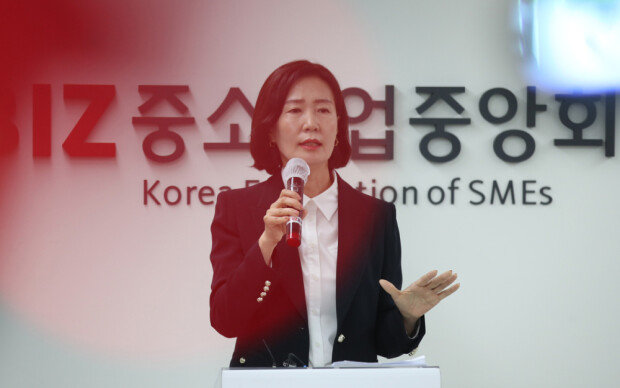High technology theft is on the rise
High technology theft is on the rise
Posted June. 08, 2023 09:07,
Updated June. 08, 2023 09:07

Worries are building up over the theft of state-of-the-art technology that has come into existence at the expense of huge amounts of money and vast manpower by Korean companies. In the past, theft by China that used to follow South Korea was an issue, but now even advanced countries are eyeing Korea’s semiconductor and battery technology. These developed countries demand key technology transfer by offering both carrots and sticks, putting Korean firms in a troubling position.
The number of national core technologies exported after passing the deliberation of the Industrial Technology Protection Committee, the affiliated organization of the Ministry of Trade, Industry, and Energy, has increased fourfold in four years, from 22 in 2018 to 82 in 2022. The export of chip technology, where South Korea has the significant upper hand, is reported to have increased by 50 percent compared to 2021. The more Korean semiconductor and battery factories are built overseas, the technology has also spread across borders.
The problem is that the severity of demand for high technology from foreign companies and governments is becoming stronger. In one case, a partner company building a battery joint venture in the U.S. with a Korean company demanded data on battery manufacturing technology under the pretext of the necessity to verify reliability. Fifteen plants are either in operation or under construction in North America, alone or in joint ventures, by the “K-battery triumvirate” composed of LG Energy Solutions, SK Energy, and Samsung SDI.
Furthermore, the U.S. government keeps demanding Samsung Electronics and SK hynix to provide sensitive information, such as semiconductor production yields, as a condition for subsidies. There will likely be more attempts to steal technology and manpower by offering a good deal to Korean employees working at an overseas branch, as countries that are fighting for technology hegemony, including South Korea, the U.S., Japan, and Taiwan, are all in dire shortage of workforce.
There is also a greater need to establish a national strategy to safeguard our technology, which has become an international target. The government function tasked with protecting technology and industry security is divided among the Ministry of Trade, Industry, and Energy, the National Intelligence Service, and the Korean Intellectual Property Office. It is urgent to establish a control tower that oversees the technological security of the country, just as advanced countries, such as the U.S., Germany, and Japan, have done.
As seen from the case earlier this year in March, when an employee of Samsung Electronics, who stole the industry’s most advanced 3-nanometer semiconductor process information, was sentenced to probation on the ground of the lack of prior convictions and being a first-time offender, the sentencing and punishment of technology theft crimes, which is currently “a slap on the wrist,” must be bolstered. Companies should enhance their protection of the source technology by focusing their technology development arms on “the mother company,” or their home turf, while aggressively expanding production facilities overseas.





![[단독]다주택자 대출연장 규제, 서울 아파트로 제한 검토](https://dimg.donga.com/c/138/175/90/1/wps/NEWS/IMAGE/2026/02/20/133392750.1.jpg)

